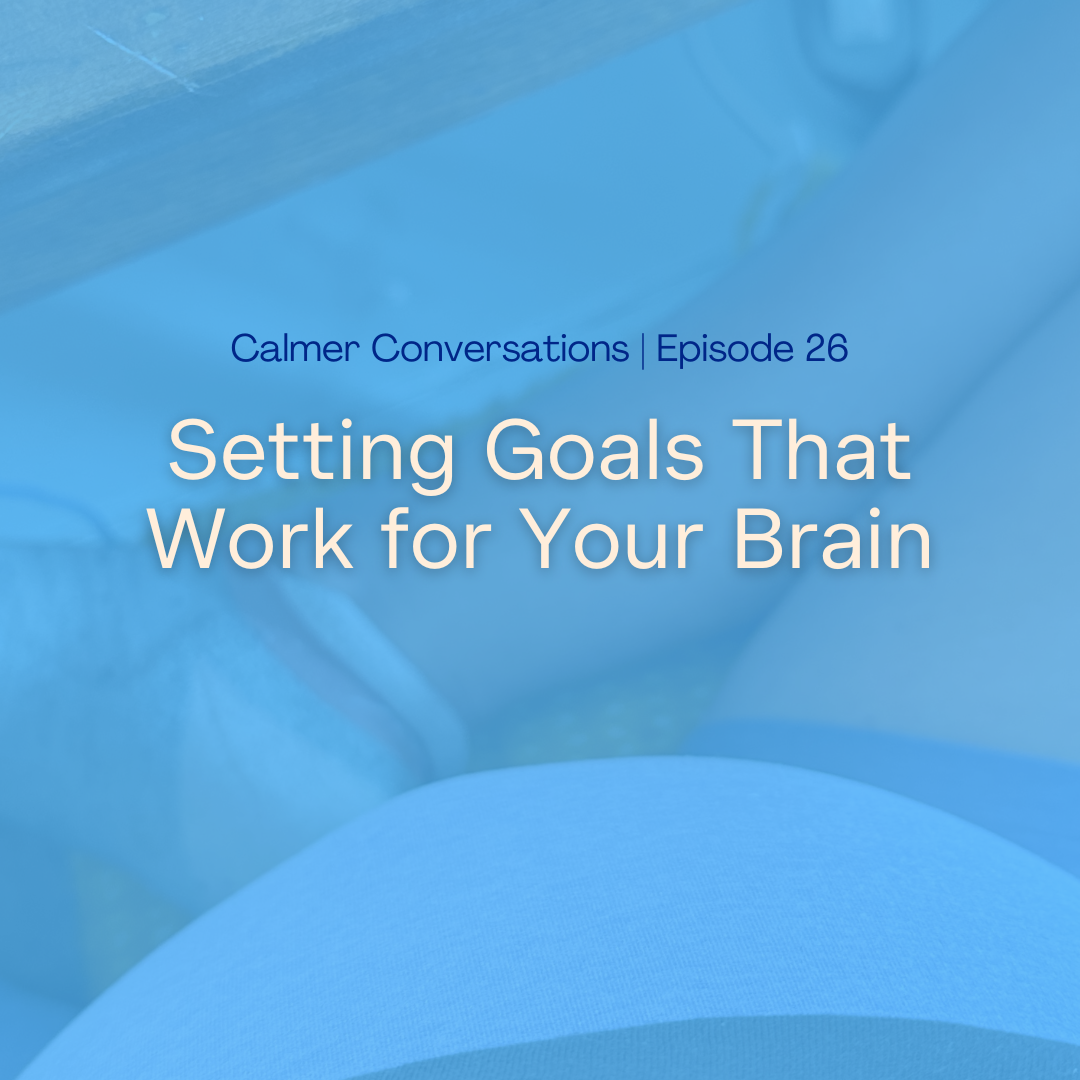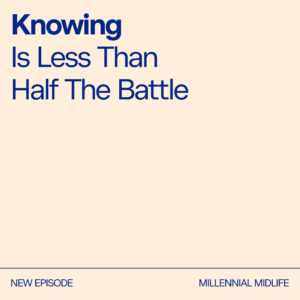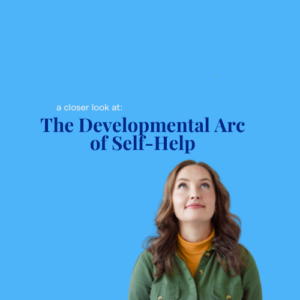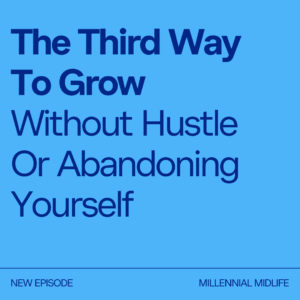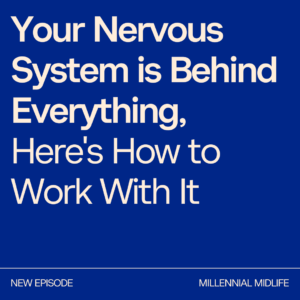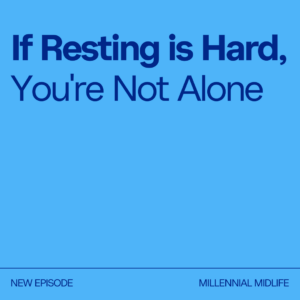Cecelia Baum Mandryk (00:03.32)
Hey and welcome to Calmer Conversations. I’m Cecilia, your host today. We are going to talk all about goals. So if you’re listening to this in real time, it’s December 26th, which means that Christmas has now passed and most people start looking to New Year’s and New Year’s Eve as the next perhaps holiday, but also New Year’s, maybe what they want to do over the next year. So I thought it might be an interesting time to talk about goals.
Specifically, we’re going to talk about why goal setting sometimes doesn’t work and maybe why you’re not setting goals or why the goals you’re setting don’t quite work and perhaps how to start working with your brain in a different way to create goals and intentions for the next year or for the next month or for whatever period of time that you want to and to do it in a brain-based way.
Right, so oftentimes we’re not working with our brain or our nervous system when we set goals and let’s change that because if you’re not working with your brain and nervous system, what happens is you set these goals, but oftentimes they are not goals that are in alignment with what you want. Perhaps they’re overly ambitious for short term. They might be perfectionist and that you think that you need to change entirely to start making progress on them, things like that.
So that’s kind of what we’re going to talk through today. So if you are somebody who likes to set New Year’s resolutions, this is for you. If you’re somebody who’s listening to this at another point in time, I think you can always set intentions and goals. There is never a bad day to do it. You can do it on a Wednesday. You can do it in the middle of the month. You can do it on the first day of the month. You’re always allowed to. You never need to wait until the first of a quarter or a month or a Monday to do these kinds of things. So whenever you have the impetus to do it, I think it’s the right time for you to do it.
All right, so let’s dive in to goals. Okay, so most people have big dreams, whether they’re professional or creative or personal, we have things we want to achieve and accomplish in our life. And that could be anything from feeling calmer in your brain to writing a book, to starting a company, to getting a position at X company, to making this much money, to whatever it is to…
Cecelia Baum Mandryk (02:22.858)
finding a romantic partner or having really great friendships. So we have goals in our life. And the interesting thing about goals is oftentimes we set them because we think they’re going to make us feel a certain way when we get there. So we think that when we write a book, we’ll feel a sense of achievement or when we get that new job, we’ll finally feel smart or when we get that award, we’ll feel accomplished or something like that, right? Or when we find that partner, we’ll finally feel loved and worthy.
So oftentimes we’re setting goals. We do things in our life because we want to feel a certain way. And that’s a really important takeaway from this, right? And so knowing or even identifying, if you have goals in mind, how do you think you’re going to feel when you reach that goal? And if you know that now, that’s kind of like a little cheat code to working with your brain before you get there.
It’s very important to know that because you can actually start to that way now. And the first brain based kind of tip is if you start to feel that way now, you will feel that way when you get there. If you have this goal and you think you’re going to magically feel different once you get it. So if you have something, for instance, you want to get a new job and you think that as soon as you get that new job, you will feel worthy. You’re going to get the job. If you haven’t practiced feeling worthy on the way to getting the job.
you won’t magically feel worthy once you get the job. And so what we’re going to try and do, or what I’m going to suggest that you might try and do on your own is that you start to feel that way now, right? So instead of feeling like you’ll be like a real writer once your book is published, you start feeling like a writer. Even if you’re writing one sentence a day, you start seeing yourself as a writer and that starts to switch things. So we set goals often because we think we want to feel we’re going to feel a certain way when we get there.
We also set goals that we think we should set. So oftentimes we have backgrounds, we you know, we’ve been raised in societies with specific sets of caregivers and families of origin, and we think that we’re supposed to do certain things. And so very often we will pick goals that we think we should have, but aren’t actually, aren’t in alignment with ourselves. And so you should also check in when you, when a goal comes up for you, when you’re thinking about maybe what you want to accomplish or how you want to feel over the next year.
Cecelia Baum Mandryk (04:47.724)
you might start to ask yourself why, what, not only why, how do think I’m gonna feel when I get there, but what is behind this? Is it because I was told I need to do this or is this something that actually lights me up and helps me feel alive? And so that’s another way to start to work with your brain and understand why sometimes people set goals and then they don’t actually follow through because they’re not their goals, right? They’re goals they think they should have, not the goals that they actually want to
So oftentimes when we set goals, so maybe they don’t align with us, we don’t understand kind of how to work with our brain to get there. And so we end up using a lot of shame and force to kind of to start moving forward on this. We also use a lot of sometimes perfectionist thinking comes in. So I mentioned this at the beginning. So we think that if we want to write a book, for instance, that we need to spend three hours writing every single day.
And it’s just totally arbitrary, but most of us have these arbitrary rules in our brain. Like I need to be doing this. And if I’m not doing this from the very beginning, then I’m never going to get there. In actuality, it is more important to change the thoughts you have around some of these things than to have the perfect plan. So having the perfect plan isn’t the thing that’s going to get you to the goal in the end. So that’s another kind of takeaway from this, right? So I’m going to keep sprinkling them throughout. knowing
that the perfect plan, first of all, you can’t create the perfect plan for the next year because you don’t know what’s gonna happen in March or June or July or October, but also because the perfect plan isn’t the thing that will actually get you the result. It’s not the thing that will get you the book. And yes, it can be really helpful to have some kind of plan to get started, but showing up exactly according to that plan generally isn’t the way to actually get where you wanna go.
especially if you’re working with your brain, if you’re not just using a lot of force to get there and self-discipline, which I don’t totally suggest because they’re gonna run out at some point. Okay, so we talked about goals not relining with why you set. You think the destination will feel, the destination is going to feel like the journey, right? So that’s, again, that’s a takeaway from the last couple ones, but that’s a really important thing to remember that.
Cecelia Baum Mandryk (07:07.394)
Your mindset isn’t going to magically shift once you get someplace. You actually have to shift it along the way. So you need to work on feeling those feelings now if you want to feel them then and work on becoming the person who has this goal or who is the person who, for instance, writes every day. That’s how you start to achieve the goal, not by specifically having the perfect plan. So your thoughts about yourself.
aren’t created by the circumstances, right? The circumstance being I have a written book, so now I can feel like an author, now I feel a certain way. But rather, your thoughts about something. And so you can start to think that you’re a writer now, and that’s actually one of the most important pieces of making progress on your goal. Okay. So if you’re not working with your thoughts, if you’re not working with your nervous system to make it safe to move forward, and it’s also really hard to make
progress on your goal. So the nervous system, feeling safe doing something. Oftentimes, we’ve tried to make progress on this goal before. And you probably maybe have quote unquote failed, and then you’ve beaten yourself up. So our brain isn’t actually afraid of the failing or the trying, our brain is afraid of the feeling that we’re going to feel when we don’t succeed immediately. Because that’s where
things have kind of gone wrong and it’s felt unsafe before. So changing the pattern you have around how you deal with failure and even planning for failure and working with failure is really important. So changing your narrative around how you talk to yourself when things don’t go as planned because I just know that they’re not going to go as planned because they never do because you’re a human and you live in a human world. I heard this once that disruption follows intention. So as soon as you have a goal, then disruption will come into your life and will just challenge you in many different ways.
and that’s okay, you just have to work with it. And I’ve said this before in a workshop, and I just said it a second ago, but planning for failure and knowing that failure is gonna be there and knowing how you’re gonna work with yourself and talk with yourself then is really powerful. So that’s looking for obstacles ahead of time and understanding how you might deal with them. And that’s not from like a worrying anxiety place, but just kind of like brainstorming what might happen. Okay, so if you do want to have…
Cecelia Baum Mandryk (09:26.486)
set goals from a place that might support you and actually achieve them, here are some steps you might take. Okay, so I have a baby with me if you’re hearing funny noises. So set a goal that aligns with your values. And this might mean doing some value work first, and you can do this on your own, or you can do it with a coach, or in a group, or with a therapist, or somebody else. But recognizing your own values and priorities for the next year is really powerful. So for instance, if you have, if your value or your priorities are in
professional growth, then you might not want to set a goal of running a marathon if you don’t feel like you’re going to be able to have time to devote to training, right? So setting goals that align with your priorities and values is really crucial. And also making sure that the goals you set are your own goals there. So I talked about not setting one that’s maybe from your family of origin or from society, but one that really rings true with you. So as you set it, making sure you are picking a goal that you’re excited about doing and that aligns with your current
values and priorities. So not your values and priorities from five years ago or in five years, but this year. And creating an action plan. So how are you going to get there? And the action plan I would suggest using is a really, really low bar action plan. So for instance, if you did want to run that marathon, but right now you’re not running at all, you might start with week one is going for a five minute walk five days a week.
and picking that time when you’re gonna do it and what it’s gonna look like and know that you’re probably not gonna make it out all five days, but you’re still gonna look for the wins there and speak with your, know, look back on what went well over the week and feel good about it. You might say, well, walking five minutes a day isn’t going to help me run a marathon, but the truth is it is because you’ll start to see yourself as somebody who moves their body every day. And before you know it, you’ll be running and then you’ll be on that training plan that you wanna be on and you’ll run your marathon this year. Work on a belief plan.
So this is connecting with what would somebody who already has achieved this goal, what would they believe? Or if they’re already in this habit, how would they believe? What would they believe to be true about themselves? How would they talk about themselves? If you had already written a book, how would you feel and what would you say about yourself? If you’d already been in that place, and what beliefs will help you get there? Like, I know that I can show up for myself every day. I figured out hard things before. Writing those kinds of, I hesitate to call them affirmations, because affirmations can be such a weird word for people.
Cecelia Baum Mandryk (11:48.972)
but creating this belief plan, this plan of actually working with your brain is really, really powerful. The next one is plan for obstacles. So obstacles are gonna come up in your life. This isn’t from a worrying or anxiety, but like, okay, if my kid gets sick, what are my plans, or if I get sick, what are my plans for movement? So maybe if I have a fever over this temperature, I’m not going to go for my walk today. Or if I’ve gotten.
less than three hours of sleep. I’m not gonna go for my walk that day. Something like that. So you know when, you know, you’ve kind of already set that up for yourself and you can kind of check it out ahead of time instead of relying on your primitive brain in the moment, which is never gonna help you. It’s never gonna get you where you wanna go. And then see if you can even fail for the success, right? If you can even use failure, if you can figure out how to work with your brain for failure.
so that you can actually move forward in the way that you want to, right? So instead of seeing failure as something bad, asking yourself, what did I learn from this or how did I grow from this? What is the win in this challenge? And if you do that, then I promise you will make progress on your goals. And if you want support doing this, then come, right, get in touch with me on Instagram maybe, and let’s work together this year. So happy end of the year, and I will see you in the next episode.

